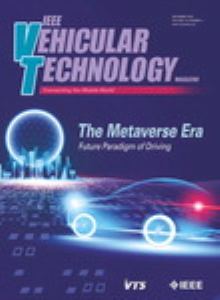车辆边缘计算中挥发性联邦学习的联合优化:一种深度强化学习方法
IF 7.1
2区 计算机科学
Q1 ENGINEERING, ELECTRICAL & ELECTRONIC
引用次数: 0
摘要
联邦学习(FL)因其减少通信开销和保护用户隐私的能力而受到高度重视。然而,在车辆边缘计算(VEC)中实现FL存在各种挑战,如dropout效应、stragler效应和低效通信。此外,在支持vec的移动易变联邦边缘学习(VFEL)系统中,车辆的动态性和波动性加剧了这些挑战。本文主要研究移动VFEL系统中的波动率问题,利用车辆的局部计算和通信波动率对丢失问题进行建模。我们制定了优化系统可靠性和学习成本的目标,并将其转化为考虑环境动力学的马尔可夫决策过程。为了实现最优的车辆选择和资源分配方案,将双延迟深度确定性策略梯度(TD3)算法与凸优化相结合,提出了一种可靠性感知的双延迟深度确定性策略梯度(RA-TD3)方案。实验结果表明,本文提出的RA-TD3方案在保持较高学习精度的同时,提高了学习成功率,降低了学习成本。本文章由计算机程序翻译,如有差异,请以英文原文为准。
Joint Optimization for Volatile Federated Learning in Vehicular Edge Computing: A Deep Reinforcement Learning Approach
Federated learning (FL) is highly valued for its ability to reduce communication overhead and protectuser privacy. However, implementing FL in vehicular edge computing (VEC) presents various challenges, such as dropout effect, straggler effect and inefficient communication. Moreover, the dynamic and volatile nature of vehicles in VEC-enabled mobile volatile federated edge learning (VFEL) systems exacerbates these challenges. In this paper, we focus on the volatility in mobile VFEL systems, modeling the dropout problem with vehicles' local computation and communication volatility rates. We formulate the objective to optimize system reliability and learning cost, converting it into a Markov decision process considering environmental dynamics. To achieve the optimal vehicle selection and resource allocation scheme, we propose a reliability-aware twin delayed deep deterministic policy gradient (RA-TD3) scheme by combining the twin delayed deep deterministic policy gradient (TD3) algorithm and convex optimization. Our experimental results demonstrate that the proposed RA-TD3 scheme improves the success rate and reduces the learning cost while maintaining higher learning accuracy.
求助全文
通过发布文献求助,成功后即可免费获取论文全文。
去求助
来源期刊
CiteScore
6.00
自引率
8.80%
发文量
1245
审稿时长
6.3 months
期刊介绍:
The scope of the Transactions is threefold (which was approved by the IEEE Periodicals Committee in 1967) and is published on the journal website as follows: Communications: The use of mobile radio on land, sea, and air, including cellular radio, two-way radio, and one-way radio, with applications to dispatch and control vehicles, mobile radiotelephone, radio paging, and status monitoring and reporting. Related areas include spectrum usage, component radio equipment such as cavities and antennas, compute control for radio systems, digital modulation and transmission techniques, mobile radio circuit design, radio propagation for vehicular communications, effects of ignition noise and radio frequency interference, and consideration of the vehicle as part of the radio operating environment. Transportation Systems: The use of electronic technology for the control of ground transportation systems including, but not limited to, traffic aid systems; traffic control systems; automatic vehicle identification, location, and monitoring systems; automated transport systems, with single and multiple vehicle control; and moving walkways or people-movers. Vehicular Electronics: The use of electronic or electrical components and systems for control, propulsion, or auxiliary functions, including but not limited to, electronic controls for engineer, drive train, convenience, safety, and other vehicle systems; sensors, actuators, and microprocessors for onboard use; electronic fuel control systems; vehicle electrical components and systems collision avoidance systems; electromagnetic compatibility in the vehicle environment; and electric vehicles and controls.

 求助内容:
求助内容: 应助结果提醒方式:
应助结果提醒方式:


